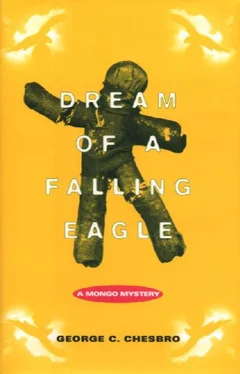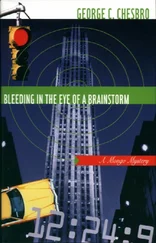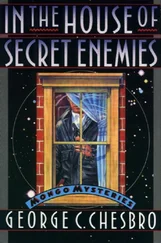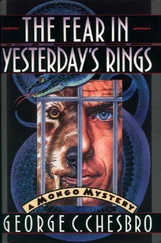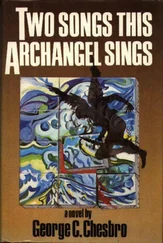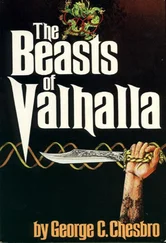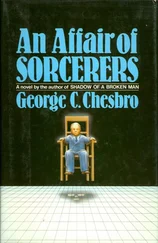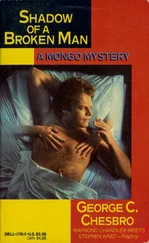George Chesbro - Dream of a Falling Eagle
Здесь есть возможность читать онлайн «George Chesbro - Dream of a Falling Eagle» весь текст электронной книги совершенно бесплатно (целиком полную версию без сокращений). В некоторых случаях можно слушать аудио, скачать через торрент в формате fb2 и присутствует краткое содержание. Жанр: Детективная фантастика, на английском языке. Описание произведения, (предисловие) а так же отзывы посетителей доступны на портале библиотеки ЛибКат.
- Название:Dream of a Falling Eagle
- Автор:
- Жанр:
- Год:неизвестен
- ISBN:нет данных
- Рейтинг книги:4 / 5. Голосов: 1
-
Избранное:Добавить в избранное
- Отзывы:
-
Ваша оценка:
- 80
- 1
- 2
- 3
- 4
- 5
Dream of a Falling Eagle: краткое содержание, описание и аннотация
Предлагаем к чтению аннотацию, описание, краткое содержание или предисловие (зависит от того, что написал сам автор книги «Dream of a Falling Eagle»). Если вы не нашли необходимую информацию о книге — напишите в комментариях, мы постараемся отыскать её.
Dream of a Falling Eagle — читать онлайн бесплатно полную книгу (весь текст) целиком
Ниже представлен текст книги, разбитый по страницам. Система сохранения места последней прочитанной страницы, позволяет с удобством читать онлайн бесплатно книгу «Dream of a Falling Eagle», без необходимости каждый раз заново искать на чём Вы остановились. Поставьте закладку, и сможете в любой момент перейти на страницу, на которой закончили чтение.
Интервал:
Закладка:
At 8:45, Francisco, whom I hadn't even heard come in, knocked at the door, opened it, and stuck his head into my office. The Hispanic, who had worked for me now for almost a decade, was slightly built and not much taller than I was, and with his new "look"- slicked-back hair and pencil-thin mustache-he resembled a pared-down version of Rudolph Valentino. "Excuse me, sir. There's someone here who'd like to speak to you."
"Who?"
Francisco must have seen the look of annoyance on my face, or heard it in my voice, because he winced slightly. "He says his name is Thomas Dickens."
"Francisco, I hope to hell you didn't give anybody an appointment."
"No, sir. He doesn't have an appointment. I think he's on his way to work."
"What does he want?"
"I don't know, sir. He said Lou Skalin recommended that he talk to you."
"Tell him I can't do anything for him until the beginning of October, at the earliest. If his business can wait until then, give him an appointment. Otherwise, give him the names of some of our colleagues."
"Yes, sir," Francisco replied, and started to close the door.
"Hold it," I said curtly, slapping my desk in exasperation and leaning back in my chair. Lou Skalin was head of the Fortune Society, a New York-based self-help organization of ex-convicts. Garth and I occasionally did pro bono work for them, and, in return, Skalin had often been an invaluable source of information on any number of matters. I liked the man, and I didn't want to offend him, even by proxy. "Send Mr. Dickens in."
"Yes, sir."
I rose from my chair and started around my desk, then almost tripped over my feet in surprise when Thomas Dickens suddenly appeared in the doorway, blocking out the sun. The man was enormous, at least six feet five or six, and upwards of two hundred and fifty pounds, all bulging muscle. His nose appeared to have been broken so many times that it was now a puffy lump of cartilage and bent bone sitting like a ball of dough in the center of his face, which was covered with crude, purplish jailhouse tattoos. He was very big and very black. Except for his eyes, dark pools that glittered with intelligence and seemed sensitive and kind, he had to be the meanest-looking, ugliest man I'd ever seen, and I'd seen more than my share of brutish types. He was wearing the summer uniform of the New York Sanitation Department. Both arms, which bulged out of his short-sleeved shirt, were also covered with old jailhouse tattoos, black on black, wiggling lines of ink carved into his flesh with the point of a shank. He was a truly awesome presence, a kind of moving mountain of graffiti advertising strength and power. In one huge ham of a hand, his left, he carried a black metal lunch pail, and under his right arm was a misshapen, scarred Ralph Lauren leather portfolio that I was pretty certain had been plucked from some pile of trash. He set down the lunch pail, then abruptly walked the rest of the way into my office and extended his hand in a quick, nervous gesture.
"I'm Thomas Dickens, Dr. Frederickson," the man said in a deep, rumbling voice that seemed laced with just a hint of anxiety. "But you can call me Moby. Everybody does. It's a kid's nickname that stuck. I used to be fat as a whale before I went to the joint and got into seriously pumping iron."
I tentatively thrust my hand up into his, and was pleased when he released it with the bones intact. "Moby Dickens. That's, uh. . right."
"I really appreciate your agreeing to see me," he said quickly, anxiously glancing back over his shoulder as if he was expecting someone to sneak up on him. "It took me a while to work up the courage to come in. I didn't want to call, because I don't speak as well as I write. I'm not good on the phone. I also know I don't make a good first impression-my appearance, I mean. I'm scary-looking, and it puts people off, so I figured I'd just take a chance and drop in on my way to work. Lou told me you're not scared of anything."
"He was talking about my brother."
"Nah. He was talking about you. Anyway, thanks again."
"Well, you haven't scared me yet, Mr. Dickens," I said, toting up my first lie of the day and discounting my first, visceral reaction when I'd seen him filling up my doorway.
"Moby."
"Moby." I pointed to a chair over by my desk that I hoped was strong enough to support him. "Come on over and sit down."
"Thank you, sir," he said, going over to the chair and sitting down, cradling his leather portfolio in both arms. The wood creaked, but the chair held together.
I went back behind my desk and sat down in my swivel chair, resisting the impulse to glance at the data that still flickered, impatiently awaiting my attention, on my computer monitor. "What can I do for you, Moby?"
"Somebody's been stealing my poetry."
"Somebody's been. . stealing. . your poetry."
"Here," he said, reaching into his leather portfolio and pulling out a magazine. "I'll show you. Page twenty-three."
He handed over the magazine, which was something called The New England Journal of Poetry, and dated two years before. I opened it to page twenty-three and saw a poem there entitled "Fountain-head," by Thomas Dickens:
I had escaped that hell riding
The backs of my demons,
Smoothing the way with paving
Stone words plucked from
The storm, cemented together
With my tears that otherwise
Would have dropped to waste,
Soaking the ground,
Miring my tongue.
Fear whispers from a far place
Deeper still than the
Cacophonous, rain-swept
Arena of our hatred,
A quiet hole where there
Is no wind and even our
Screams are drowned In the silent sea.
"Very nice," I said, glancing up into the scarred, mashed, and tattooed face of the man sitting across from me.
"Thank you."
I looked to my right as Garth, dressed in shorts and a T-shirt and carrying the fistful of papers he had taken up to his apartment the night before, entered the office. He stopped when he saw us. "Sorry," he said, taking a pencil from between his teeth. "I didn't know you had anybody in here with you."
"What's up?"
"I need to call up the names of all those shell corporations, and Francisco's using his terminal to do something else for me. It'll wait. I'll come back when you're finished."
"It's all right," I said, getting up and coming around from behind the desk. "This won't take much longer, and we can move over to the couch. Garth Frederickson, this is Moby Dickens. Somebody has been stealing Mr. Dickens' poetry."
I thought Garth might be as amused as I was by the name, or show some sign of interest in the situation, but my brother was either being polite or was totally distracted by his paper pursuit of the CIA's dummy companies, because he displayed no reaction at all. He sat down behind my desk, brushed a few stray strands of his shoulder-length, wheat-colored hair away from his eyes, then began a brutal attack on my keyboard using the index finger of each hand.
I motioned Moby Dickens over to the small couch set up along the wall of the office, to the left of my desk, and he went over and sat down on it. He filled most of the couch, so I pulled up the single chair and sat down in front of him. He once again reached into the cracked leather folds of his portfolio and pulled out another magazine. This one was called The Raging River Review, and was printed on much cheaper paper than the first journal he had shown me, with the pages stapled together. It was dated six months before. He opened the magazine to a page, handed it to me. There was a poem entitled "Fright," by Jefferson Kelly:
Speaks softly From a distant place Even deeper than the Cacophonous, rain-swept Arena of our hatred; A still hole where there Is no breeze and even our Screams are drowned Out by the Din of silence.
Читать дальшеИнтервал:
Закладка:
Похожие книги на «Dream of a Falling Eagle»
Представляем Вашему вниманию похожие книги на «Dream of a Falling Eagle» списком для выбора. Мы отобрали схожую по названию и смыслу литературу в надежде предоставить читателям больше вариантов отыскать новые, интересные, ещё непрочитанные произведения.
Обсуждение, отзывы о книге «Dream of a Falling Eagle» и просто собственные мнения читателей. Оставьте ваши комментарии, напишите, что Вы думаете о произведении, его смысле или главных героях. Укажите что конкретно понравилось, а что нет, и почему Вы так считаете.
